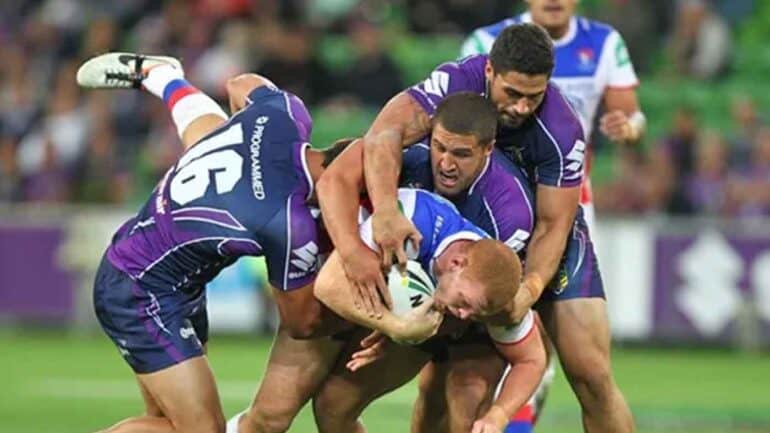The brutal realities of rugby league can sometimes lead to life-altering events, and Alex McKinnon‘s story is a testament to the strength and resilience required not just to survive, but to forgive and thrive beyond the darkest moments. In an emotional interview with Sarah Grynberg for “Stories of Us,” McKinnon opens up about the journey he undertook to forgive those responsible for the tackle that confined him to a wheelchair.
“I didn’t speak to any of them for about a year”
McKinnon recalls the isolation and anger he felt after the incident, a common sentiment among athletes faced with sudden, dramatic shifts in their lives. “I carried a lot of anger and hate towards them,” he admits, referencing the long year before he could face the people who changed his life. It was a move back to Newcastle, a return to solitude, which allowed him to finally process his trauma, illustrating the often overlooked aspect of healing in sports—mental recovery.
The NRL has witnessed its fair share of injuries, but McKinnon’s story brings a human element to the forefront. He discusses the importance of mourning and truly feeling the full impact of his injuries to begin the healing process. This step was vital, not just for physical rehabilitation, but for his mental well-being. “It wasn’t until I sat in that pain… that I was just feeling all these emotions,” McKinnon shares.
Forgiveness came with understanding and empathy. “They didn’t intentionally go into that game to put me in a wheelchair,” McKinnon reflects, demonstrating a remarkable level of empathy and personal growth. His ability to forgive those involved and to express it directly to them underscores a critical turning point in his recovery and shows a path forward for others in similar situations.
The National Rugby League, known for its physicality, also becomes a landscape where stories like McKinnon’s can offer profound lessons on resilience. His experience presents an opportunity for the league, coaches, and players alike to engage more deeply with the emotional and psychological support structures necessary for athletes in the aftermath of severe injuries.
His final thoughts resonate with anyone facing a personal struggle: “It’s time to kind of move on and find a new life.” McKinnon’s remarkable journey is a beacon of hope, signalling that even from the depths of personal grief, a new beginning is possible with forgiveness as the key.
Download the free LiSTNR app to listen now
